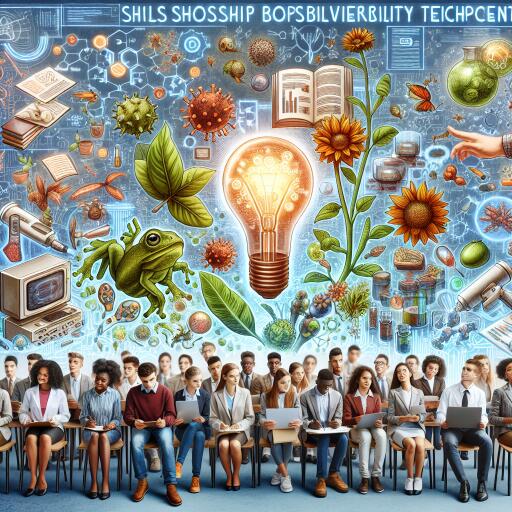
Scholarship Boosts Biodiversity Tech Potential
In an inspiring advance for conservation science, eight students have been chosen to receive scholarships that promise to invigorate the integration of technology and biodiversity studies. The Department of Conservation’s Post-graduate Scholarship programme, now in its fourth year, continues to empower students in their quest to merge the realms of ecological preservation with technological innovation.
The excitement surrounding the announcement of this year’s recipients is palpable, with the diversity and innovation in their research topics heralding a new era of conservation efforts. At the heart of the selection process was a clear focus: to identify projects that not only promise scientific excellence but also align with the strategic movement toward utilizing cutting-edge technology in the fight to preserve ecosystems.
From the analysis of environmental DNA (eDNA), which includes groundbreaking research on lizards and sea sponges, to the advanced use of remote sensing for monitoring subantarctic albatross species, these projects shine a light on how technology can deepen our understanding of the natural world. One remarkable study even seeks to merge Mātauranga Māori—traditional Māori knowledge—and ecological restoration principles to explore fungal diversity within wetland forests, highlighting the vital importance of cultural perspectives in conservation science.
This year, the scholarships, valued at up to $15,000 each, have been awarded in partnership not only with the Department of Conservation (DOC) but also with Biosecurity New Zealand’s Kauri Protection initiative and the Environmental Protection Agency (EPA), underlining a collaborative effort across various government bodies to support these budding conservationists. Each recipient’s project embarks on a unique journey to address crucial ecological challenges, from forest health monitoring using cultural indicators to examining the interactions among marine species and their implications for reef ecosystems.
The 2023 scholarship beneficiaries represent a spectrum of universities across New Zealand, showcasing the nationwide commitment to fostering environmental research and innovation. Their topics cover a plethora of critical conservation issues, including the development of monitoring frameworks for protected areas, the revolutionary use of eDNA in detecting elusive lizard populations, and the examination of climate-induced shifts in bird migration and plumage variation among endangered species.
These scholars stand at the forefront of merging technology with traditional ecological knowledge, promising to yield insights that could transform conservation practices. As these ambitious projects unfold, the conservation community eagerly anticipates the fresh perspectives and solutions that will emerge, marking a significant step forward in our collective endeavor to safeguard biodiversity for generations to come. With such ingenuity at play, the future of conservation science looks brighter than ever.





Leave a Reply